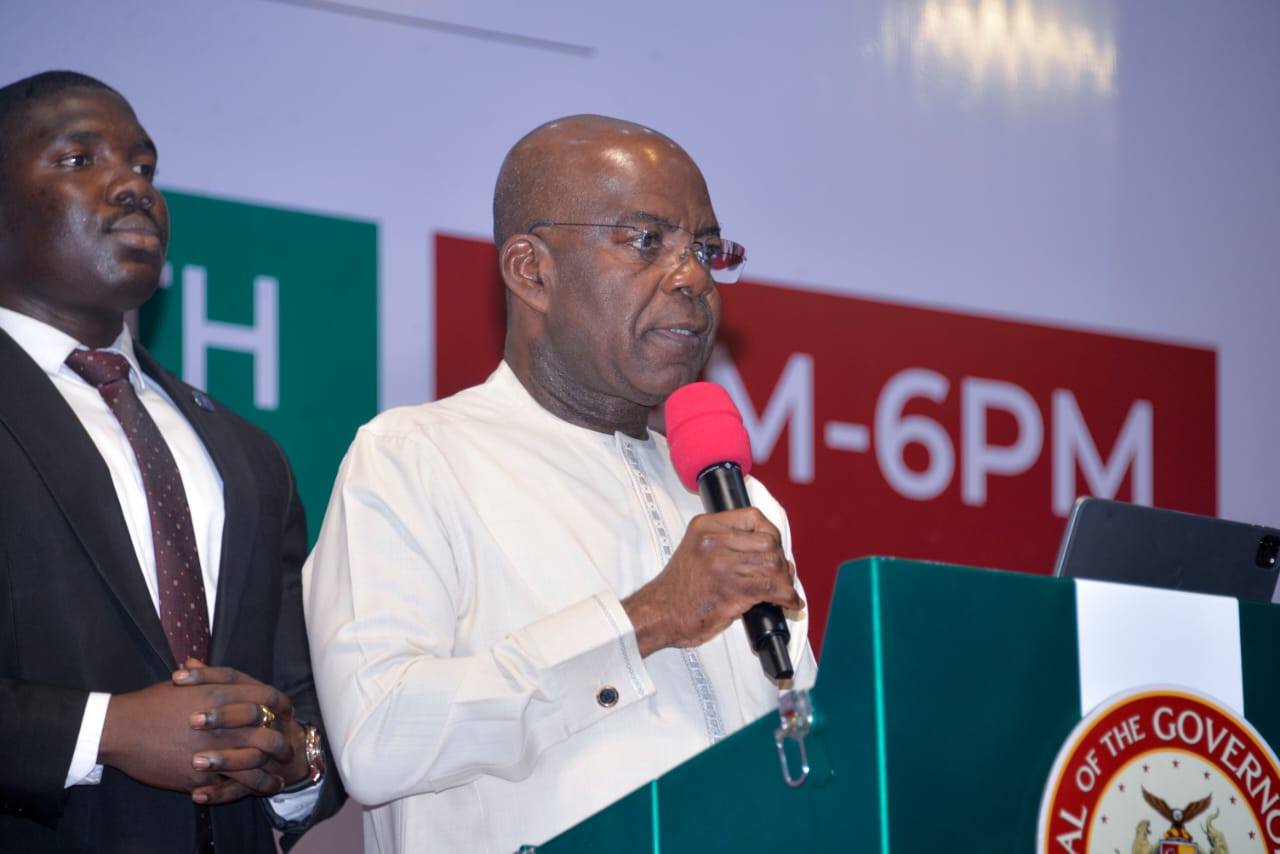Wale Igbintade
The first prosecution witness (PW1) for the Economic and Financial Crimes Commission (EFCC), Mr. Ajayi Michael Folaseye, on Monday told a Federal High Court in Lagos how he rejected a $7,000 bribe allegedly offered by a colleague seeking Unauthorised access to the bank’s internal systems.
Ajayi, who works in the Information Technology (IT) department of Premium Trust Bank, testified before Justice Alexander Owoeye in the ongoing trial of Kehinde Odeyemi and Matthew Adeniyi Damilola, both employees of the bank.
They are standing trial alongside three others, Samson Latshin Dakup, Bolaji Omotosho Yinka, and Sunday Badeniyi Okunola on a seven-count charge bordering on conspiracy to steal.
The case is being prosecuted by the Lagos Zonal Directorate 1 of the EFCC.
Led in evidence by EFCC counsel Rotimi Oyedepo, SAN, Ajayi told the court that the first defendant, Kehinde Odeyemi, an internal auditor, approached him during office hours on May 5, 2023, with a suspicious proposal.
“She approached me and suggested we could make money from a ‘side gig. She asked for a generic IP address used within the IT department,” he testified.
Ajayi explained that he informed her there was no generic IP address, only personal IPs assigned to individual users.
Despite his refusal, Odeyemi allegedly offered him $5,000 in cash, promising to deliver the money from the bank’s head office that evening. When he again declined, she increased the offer to $7,000.
“I told her I wasn’t interested,” he said. “She then warned me to keep the conversation secret and threatened to resign if I reported her.”
Ajayi said he immediately attempted to report the incident to his supervisor, Mr. Kenneth Nwaeze.
When Nwaeze was unavailable, he escalated the matter to Mr. Idriss Adegoke and later to the Head of IT, Mr. Mike Koledoye.
According to him, Koledoye convened a meeting the next day, May 6, 2023, with all parties involved.
After hearing their accounts, Koledoye directed that appropriate security measures be taken.
The witness stated that on May 13, he (Ajayi) and two other staff members were invited by the EFCC to make formal statements.
Ajayi explained that the IP address Odeyemi requested was a sensitive access point to the bank’s servers and databases.
“It grants access to customer data and core banking operations. Disclosing it would pose serious cybersecurity risks,” he said.
He added that sharing such information would breach the bank’s data protection policy.
“My department is the backbone of the bank, we warehouse all transaction data. A breach could lead to cyber-attacks or loss of customer trust.”
When asked why he chose to report the incident despite being warned to stay silent, Ajayi responded, “Given past incidents, the bank mandates us to report any suspicious behaviour immediately. It could have been a trap or an integrity test.”
The prosecution sought to tender Ajayi’s written statement to the EFCC as evidence.
Although defence counsel objected, citing illegibility, Justice Owoeye admitted the document, ruling that the issues raised were for cross-examination and not grounds for inadmissibility.
Earlier in the proceedings, counsel to the first defendant, Adeleke Adepoju, applied for an adjournment, citing inadequate access to prosecution materials.
He referenced Section 36(6) of the Constitution and Section 396 of the Administration of Criminal Justice Act, 2015.
Counsel to the second and fifth defendants, Messrs Olusola and A. Oliha respectively, also objected to the trial proceeding, claiming that the proof of evidence served on them was unclear and unreadable.
In response, Oyedepo opposed the applications, stating that the prosecution had served the documents since June 19.
“If the defence had concerns, they should have raised them before today. All parties agreed to this trial date,” he argued.
In a bench ruling, Justice Owoeye dismissed the objections and directed the prosecution to proceed with its first witness.
The matter was adjourned until July 18, 2025, for further hearing.
The EFCC had on May 20, 2025, arraigned the defendants on a seven-count charge of conspiracy to steal.
According to the EFCC, the defendants conspired between April and May 2025 to manipulate Premium Trust Bank’s server and domain credentials in an attempt to gain unauthorized access to its database and steal funds.
The charge reads in part “That you, Kehinde Odeyemi, Samson Latshin Dakup, Bolaji Omotosho Yinka, Sunday Badeniyi Okunola, and Matthew Adeniyi Damilola, along with others now at large—including persons identified as Humble, Wasiu, Isa Ismaila, and Victor Joshua Ilemona (a.k.a. Oracle)—conspired to unlawfully manipulate the server access codes and domain credentials of Premium Trust Bank, with the intent to gain unauthorized access to its database and steal depositors’ funds, thereby committing an offence contrary to Sections 27 and 28(1)(b) of the Cybercrimes (Prohibition, Prevention, Etc.) Act, 2015 (as amended in 2024), and punishable under Section 28(2) of the same Act.”



